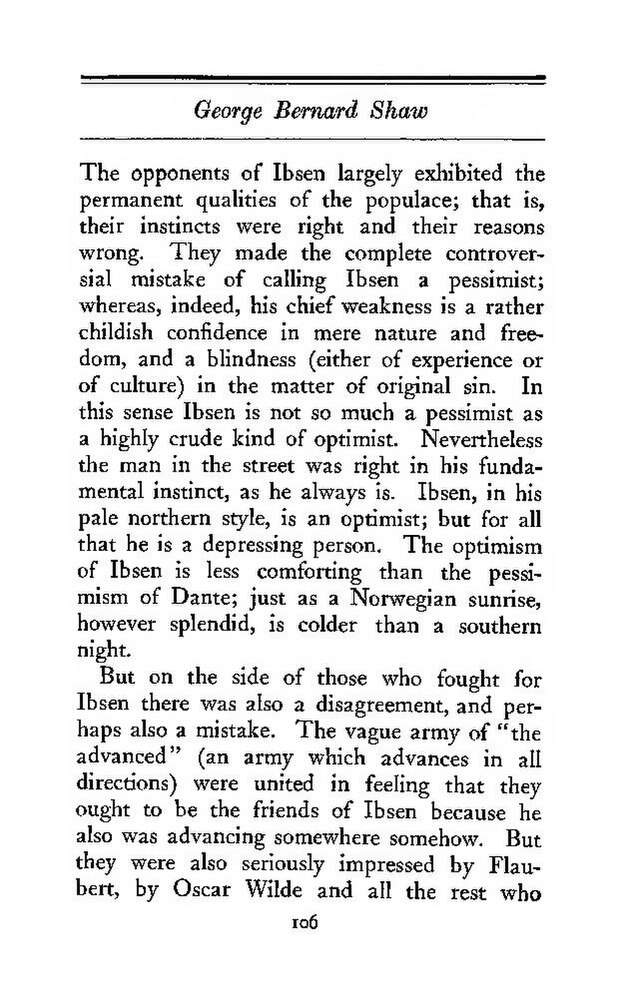The opponents of Ibsen largely exhibited the permanent qualities of the populace; that is, their instincts were right and their reasons wrong. They made the complete controversial mistake of calling Ibsen a pessimist; whereas, indeed, his chief weakness is a rather childish confidence in mere nature and freedom, and a blindness (either of experience or of culture) in the matter of original sin. In this sense Ibsen is not so much a pessimist as a highly crude kind of optimist. Nevertheless the man in the street was right in his fundamental instinct, as he always is. Ibsen, in his pale northern style, is an optimist; but for all that he is a depressing person. The optimism of Ibsen is less comforting than the pessimism of Dante; just as a Norwegian sunrise, however splendid, is colder than a southern night.
But on the side of those who fought for Ibsen there was also a disagreement, and perhaps also a mistake. The vague army of "the advanced" (an army which advances in all directions) were united in feeling that they ought to be the friends of Ibsen because he also was advancing somewhere somehow. But they were also seriously impressed by Flaubert, by Oscar Wilde and all the rest who
106
